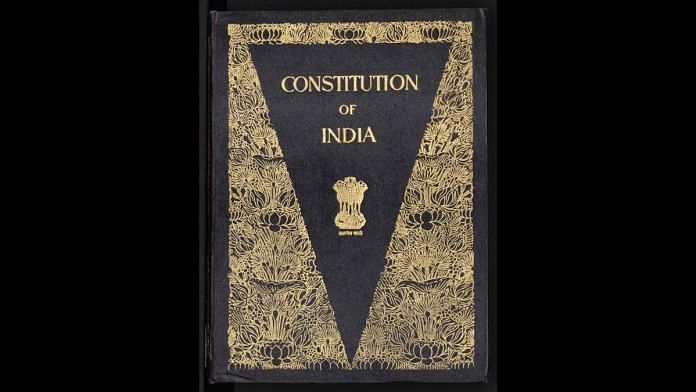It’s Republic Day. We will celebrate it as usual with a grand military parade in New Delhi, and flag-hoisting functions at government offices, educational institutions, apartment complexes and neighbourhoods. We will sing patriotic songs, honour our soldiers, listen to a speech by a chief guest and enjoy the rest of the holiday. In some of these functions, we will read out the Preamble to the Constitution aloud, a very good practice that started in recent years and one that ought to become more popular. These apart, there are some unusual developments this year with the invited foreign dignitary unable to turn up in New Delhi and uninvited farmers turning up in their thousands instead, for their very own Republic Day parade.
We have put the Indian republic on a high pedestal. In practice, though, the Indian republic is crumbling for the want of care. We publicly venerate the republic, even worship the Constitution, but we cannot care less about upholding it in practice. From the humblest citizen who wilfully violates traffic rules, to the middle-class businessman who cheats on taxes, to the public officials who line their pockets, to political leaders who use state power boundlessly, to judges and other constitutional authorities who bend in the direction of the prevailing winds, everyone pays respect to the Constitution. We all celebrate 26 January.
Yet the sum total of our actions leaves the republic weaker by the day. The crumbling started a couple of generations ago, slowly at first. Now, it is in a landslide. As I wrote in a column last month, “We are not even aware of the dangers of this deficiency…there is scarcely a whimper at the constant, popular undermining of the republic.”
Also read: What will replace the first Indian republic? Three journeys democracy can take now
One fell swoop
This sounds gloomy and pessimistic, and no one today can honestly say that they expect public officials — at any tier of government — to uphold their constitutional duty regardless of popular prejudices, political partisanship or monetary inducements. If we are asked to name public officials and institutions that can be relied upon to do their duty, come what may, we will perhaps find only a handful. Reversing the direction where the finger is pointed, do we “expect” public officials to do what they constitutionally ought to, or do what we want them to? If we do not see the difference between the two, we are guiltier than charged.
It is not difficult to see why the Indian republic is under stress. It enshrines values and norms that were — and unfortunately still are — far ahead of the society it sought to govern. In one fell swoop, it overturned a social order that had been in place for centuries. It recognised the primacy of the individual in a land where endogamous communities governed social life, and where hard hierarchies were entrenched. It sought to shape a modern polity based on civic nationalism, while trying to rub out ancient divisions of caste, creed and religion. As perhaps the only constitution that sought to enshrine a progressive social revolution — it suffered a backlash from the day it came into force. It did not help that the leaders of the new republic lost interest in educating its citizens about its importance, leaving it to desultory civics classes in high schools that involved memorising a few sentences without understanding any of them.
Also read: Un-Indian, copied: 70 years on, Constitution is still attacked because we have failed it
Republic in practice
B.R. Ambedkar’s greatness lies as much in his prescience as in his powerful intellect. He was right on the mark when he said, “However good a Constitution may be, if those who are implementing it are not good, it will prove to be bad. However bad a Constitution may be, if those implementing it are good, it will prove to be good.” So it is important to heed his most important warning. He said that India risks losing its freedom again if we fail to do three things: first, “hold fast to constitutional methods of achieving our social and economic objectives”; second, not “to lay [our] liberties at the feet of even a great man, or to trust him with power which enable him to subvert [our] institutions”; and third, “we must make our political democracy a social democracy as well”.
Statues of Ambedkar often show him holding the Constitution in one hand, his other arm outstretched, finger pointed forward. The metaphor is brilliant. Yet we have put him on a pedestal too, making a public show of respecting him while doing the opposite of what he wanted us to do. It’s now more urgent than ever to follow the direction that he is seen pointing towards.
To preserve, protect and strengthen the Indian republic, we need to look no further than Ambedkar’s three guidances: insist on constitutional methods, avoid sycophancy, and recognise “liberty, equality and fraternity as the principles of life”.
A nation as large and diverse as India cannot painlessly execute a sudden change in direction. Individual citizens, public officials or leaders cannot change overnight. But we can make small changes at the margin. Everyone becoming just a little bit more law-abiding; just a little more sceptical about our leaders, parties and ideologies; and a little more conscious of our privileges and prejudices will get us back to ensuring that India is a living republic, a republic in practice than merely one on a pedestal.
The author is the director of Takshashila Institution. Views are personal.



